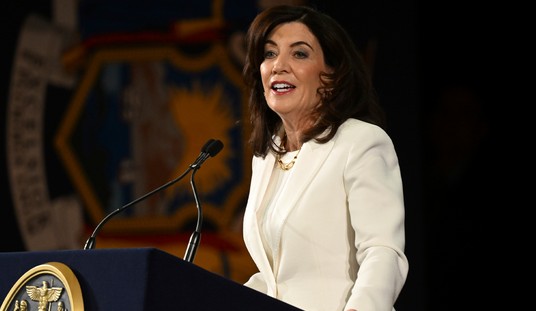Ninety percent of the reason this is getting buzz online, I’m convinced, is simple amusement at the thought of Mr. Reasonable toking himself silly as a teen. There’s no member of the commentariat who better fills the niche of well-meaning but paternalistic establishmentarian; as such, this is like watching an old episode of “Father Knows Best” where Robert Young reminisces about doing keg stands in his youth.
Alternate headline via Matt Lewis: “Smoke weed and you too might grow up to be a nationally famous columnist for America’s most respected paper.”
Smoking was fun, for a bit, but it was kind of repetitive. Most of us figured out early on that smoking weed doesn’t really make you funnier or more creative (academic studies more or less confirm this). We graduated to more satisfying pleasures. The deeper sources of happiness usually involve a state of going somewhere, becoming better at something, learning more about something, overcoming difficulty and experiencing a sense of satisfaction and accomplishment…
We now have a couple states — Colorado and Washington — that have gone into the business of effectively encouraging drug use. By making weed legal, they are creating a situation in which the price will drop substantially. One RAND study suggests that prices could plummet by up to 90 percent, before taxes and such. As prices drop and legal fears go away, usage is bound to increase. This is simple economics, and it is confirmed by much research. Colorado and Washington, in other words, are producing more users…
[T]hese are the core questions: Laws profoundly mold culture, so what sort of community do we want our laws to nurture? What sort of individuals and behaviors do our governments want to encourage? I’d say that in healthy societies government wants to subtly tip the scale to favor temperate, prudent, self-governing citizenship. In those societies, government subtly encourages the highest pleasures, like enjoying the arts or being in nature, and discourages lesser pleasures, like being stoned.
That’s a more elegant version of the point I flagged yesterday, that we should keep the ban on weed not because marijuana’s dangerous but because there are enough legal vices already luring us away from “higher pleasures.” The higher/lower pleasures argument is clever in that inevitably a few legalization advocates will be baited into countering that smoking is as edifying as any intellectual or professional pursuit, which plays directly into middle America’s fear of legalized weed turning the country into a bunch of lotus-eaters. The better counter, as Brooks’s own career illustrates, is that most people interested in the higher pleasures can and will chase them notwithstanding indulgence in the lower ones.
If he’s this serious about nurturing a nation of museum-goers, though, there’s really no reason to stop at pot. It’s easier to keep a lid on weed because it’s already banned in nearly every state, but if we’re all about promoting higher pleasures by pushing lower ones underground, alcohol and porn (and fatty foods?) should be next up for restrictions. That’ll take more effort — cultural biases towards permissiveness will have to be changed and legislation will have to be enacted — but effort is a small price to pay to engineer a more enlightened citizenry. Think of the, er, man hours we’d save if Internet porn suddenly became more difficult to access. (Or better yet, don’t. No one wants to read a David Brooks column on youthful experimentation with porn.) What do we do, though, if/when people deprived of porn, booze, and weed decide to spend their time playing “Grand Theft Auto” or watching the Kardashians instead of reading a book or visiting MOMA? How much engineering are we prepared to do here? Hard to believe that America’s appetite for “lower pleasures” is basically tolerable at its current level but would be pushed into the danger zone by legalizing something that’s already widely practiced illegally. If you want to clean up the culture through legislation, there’s no reason to stop at marijuana except laziness.
The other, bigger problem:
https://twitter.com/lachlan/status/419108887451942912
We’re breaking an awful lot of eggs to make this “higher pleasure” omelet — in David Freddoso’s words, “the wasted human capacity that is rotting in our prisons, the racial disparity of enforcement, the proliferation of paramilitary police tactics (and thus costly or deadly police mistakes), the intrusive financial surveillance (what would happen to the drug war if we replaced the income tax?), and the violence of the black market.” And ironically, the more broken the offenders are, the less likely Brooks’s omelet is to happen. If you’re frozen out of decent-paying jobs as an adult because you did time in your early 20s for selling weed, maybe you’ll turn to books and museums as your pastimes. But I wouldn’t bet on it. Which leaves us with a paradox: If the point of keeping pot verboten is to encourage citizens to better themselves, why make the punishment for using it so heavy that certain crucial means of self-betterment end up being foreclosed afterward? Rand Paul likes to make the point that if Obama had been busted as a teen over marijuana, his career prospects might have been so damaged that he’d never have become president. That’s a … nuanced argument for decriminalization to try on an Obama-hating conservative crowd, but it’s a stark way of expressing how steep the professional price can be for a victimless crime committed in one’s youth. Dubya, in fact, would have been disqualified too, despite having a more serious problem with alcohol into adulthood that carried no legal penalty.
What we’re really arguing about here is how many people would or should be sacrificed in a legalization regime versus a prohibition one. Brooks wants to save some fraction of pot users who wouldn’t try the drug but for legalization and will become consumed with it once they do. Legalizers want to save that fraction of pot users who, like David Brooks, have no problem managing their use and may eventually “age out” of it but end up in prison anyway because they got caught. How many of the latter should be sacrificed for the former? Or vice versa?







Join the conversation as a VIP Member